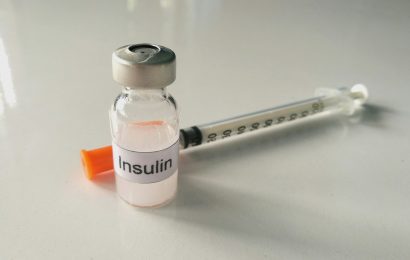Some experts are calling Alzheimer’s disease (AD) “Type 3 diabetes,” because it relates to problems with insulin function. Preventing this condition combines good diabetes self-management with care for the brain.
Alzheimer’s is a progressive disease that destroys memory and other important mental functions. People with Type 2 diabetes are 50–65% more likely to develop Alzheimer’s disease than people with normal blood sugars. Approximately half of people with Type 2 will go on to develop Alzheimer’s in their lifetime.
Thinking of Type 3 diabetes as another complication of Type 2 gives some ideas on how to prevent it. Here are 10 possible approaches for avoiding Alzheimer’s disease:
1. Diabetes medications might help. Metformin seems to. A study at Tulane University followed 6,000 veterans with diabetes and showed that the longer a person used metformin, the lower his chances of developing Alzheimer’s and other dementias. People who took metformin for more than 4 years had only one quarter the risk of these diseases.
Newer diabetes drugs in the class known as GLP-1 receptor agonists have been found to improve memory and prevent Alzheimer’s changes in mice and preliminary human studies.
2. Food plays a significant role. Unfortunately, different experts have different prescriptions on what to eat.
Dr. Mark Hyman, author of The Blood Sugar Solution, says, “Balance your blood sugar with a whole-foods, low-glycemic diet. You can achieve this by taking out the bad stuff (refined carbs, sugar, alcohol, caffeine, processed foods, dairy, and inflammatory, omega-6 rich oils) and putting in the good stuff (healthy fats like avocados, walnuts, almonds and cashews, grass-fed meats, pastured chicken and eggs, olive and coconut oil).”
Neal Barnard, director of the Physicians’ Committee for Responsible Medicine, agrees about avoiding sugars and refined flours. Unlike Dr. Hyman, he advises that saturated (animal) fats are bad. He also warns against trans (artificial) fats. Dr. Suzanne De La Monte, whose team coined the term “Type 3 diabetes,” says “Sugar is clearly implicated, but there could be other factors as well, including nitrates in food.”
It sounds as though a healthy diabetes diet, such as a Mediterranean diet, is the best diet found yet for Alzheimer’s disease. Health writer Mark Bittman wrote for The New York Times that “The good news is that laying off soda, doughnuts, processed meats and fries could allow you to keep your mind intact until your body fails you.
3. Superfoods and supplements may also have a place. Dr. Hyman and others advise taking a multivitamin daily. He says to take omega-3 oils; vitamins B6, B12, and folate; vitamin D, and a probiotic, and advises being tested to see what other supplements you might need.
The site Alzheimer’s Prevention has a different list of supplements: coenzyme Q10, alpha-lipoic acid, ginkgo biloba, phosphatidylserine, and acetyl-L-carnitine. They agree about the value of omega 3s. They also advise eating lots of blueberries, spinach, and seaweed.
I don’t have enough information to judge any of these supplement recommendations. I think eating healthy fats and avoiding refined carbs will help most people. But there’s more to preventing Type 3 diabetes than food.
4. Keep your body active. Studies show physical activity can prevent and even slow down the progression of brain diseases like Alzheimer’s disease. Aerobic exercise, burst training, strength training, yoga, and stretching might all help.
5. Keep your mind active. Learn new things and do mental activities such as puzzles. Brain training programs such as Lumosity have been shown to protect brain function in older adults. My mother did Lumosity faithfully, and when she died at age 91, her mind was quicker than mine.
6. Control stress levels. You can cope with stress through activities such as deep breathing, meditation, prayer, yoga, spending time in nature or with an animal, getting hugs, or doing something for others. Reducing stress may involve getting more help, developing more realistic expectations, and changing some life situations that make you anxious.
7. Get at least 8 hours of sleep every night. Studies show Poor sleep is a risk factor for cognitive decline and Alzheimer’s disease. Deep sleep is when the brain heals, and I wonder if inadequate sleep is a major cause of both Type 3 and Type 2 diabetes.
8. Control your cholesterol and blood pressure. You can achieve this in similar ways to the lifestyle measures already listed, but you may also want to take medication if your doctor agrees.
9. Stop smoking. I would call this a “no-brainer,” but the idea is to keep your brain going. Smoking reduces circulation to the brain, damaging or killing brain cells.
10. Get more social contact. Interacting with other people is a powerful way to stimulate your mind.
Certified diabetes educator and registered dietitian Amy Campbell gives several strategies for improving memory here.
It seems that Type 3 diabetes can often be prevented. Remember also that many people who have Alzheimer’s disease have normal, happy lives and such mild symptoms that nobody notices. It’s worth doing all you can to manage and minimize this frightening condition.
Want to learn more about diabetes and preventing memory loss? Read “Memory Fitness: How to Get It, How to Keep It” and “Nine Tips to Keep Your Memory With Diabetes.”





